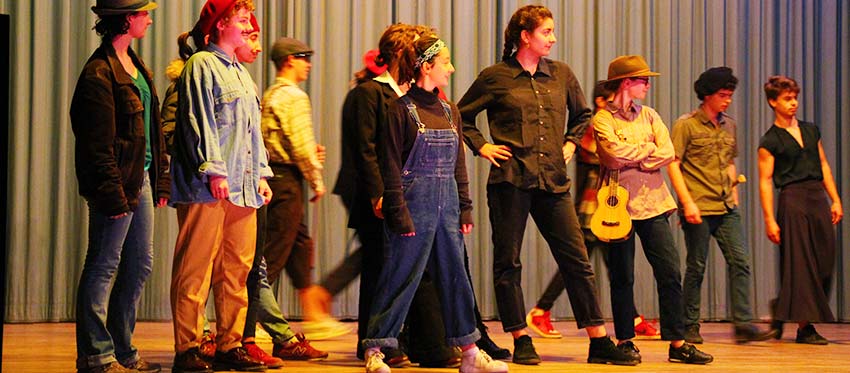On the road to autonomy
During the middle school years, the young teenager undergoes a profound metamorphosis. Inner and physical transformations, often accompanied by emotional turmoil, until they find a new equilibrium. Young people aged 13 to 16 leave behind the authority of their primary school teacher and set out on their own path, helped in particular by two main teachers.
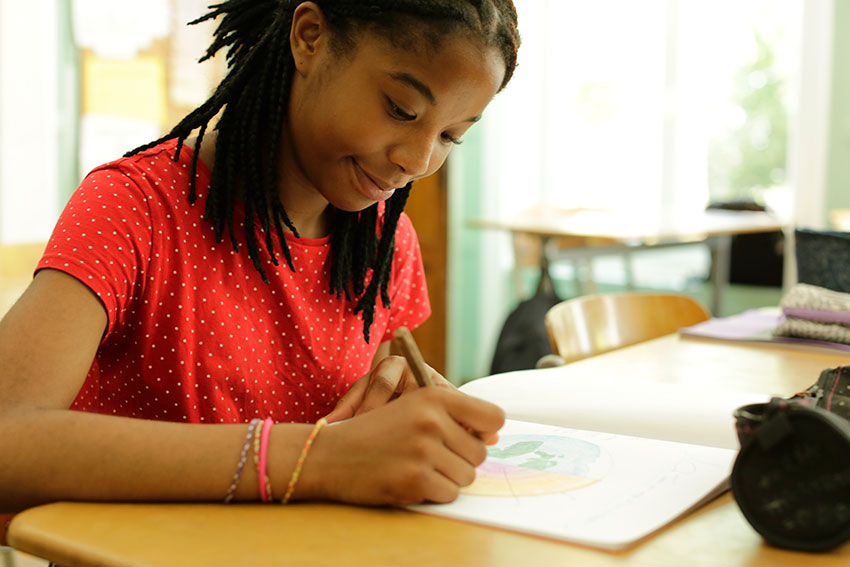
A team of specialist teachers
A team of a dozen teachers now accompanies these young people, helping them to gradually become responsible. Via a particular subject, using their own particular skills, each teacher opens up a range of experiences and knowledge of the world. Teachers accompany the adolescent as they search for their own motivations and values. Observation, investigation and experimentation are proposed to help the individual confront the world, an experience that allows them to get to know themselves better. Teachers support a process of empowerment and individualisation, giving students confidence in their own ability to seek and understand.

A wealth of experience
The programme for each of these years includes a wide range of craft workshops (sewing, modeling, woodwork and copperwork, metalwork), various art workshops (plastic arts, music, eurythmy), a play, a woodcutting course and an agricultural course, as well as a music course, a choir and an orchestra; interclass and volunteer-based projects, as well as individual language exchanges.
Pupils are encouraged to create, build and cooperate. The life of feelings and emotions is supported and brought to full expression through the Arts. Powers of judgment and thought are developed through contact with matter, and through experimentation they discover “laws.” At the end of these four years, the adolescent has acquired a certain physical and mental maturity, which opens the doors to the Lycée.

Middle schools, class by class
7th grade
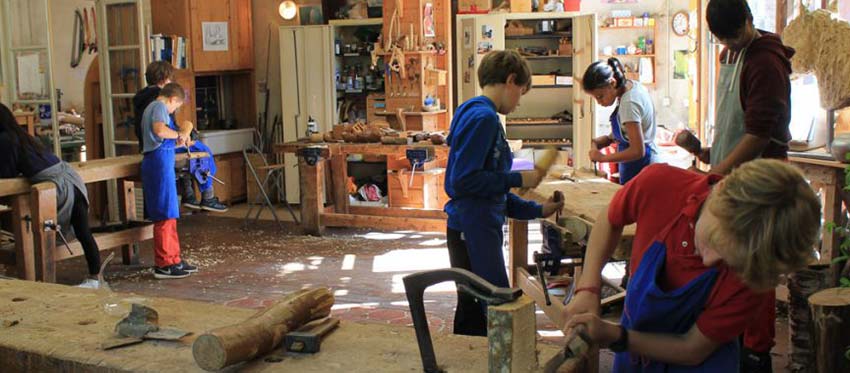
7th grade highlights
Seventh-graders can be enthusiastic about the world, which keeps them on their toes. Their interest and curiosity drive them to discover and seek. At this age, there’s a growing capacity for logical thought.
It is for these reasons that students receive their first instruction in Chemistry in 7th grade, the year they understand the world through broad categories (acid-base). In Life and Earth Sciences, they work on ecology through the study of animals and plants. In French, they experience different universes through the study of. Universal tales.
Teachers propose a polarised approach to facts. In History, with the great discoveries, they experiment with relative numbers (negative and positive) and the basics of algebra (balancing the scales).
7th grade lays the foundations for the entire curriculum of middle school.
Subjects taught
French, mathematics, history, geography, physics, chemistry, life and earth sciences, physical and sports education, English, German, fine arts, music, sewing, woodworking and eurythmy.
8th grade
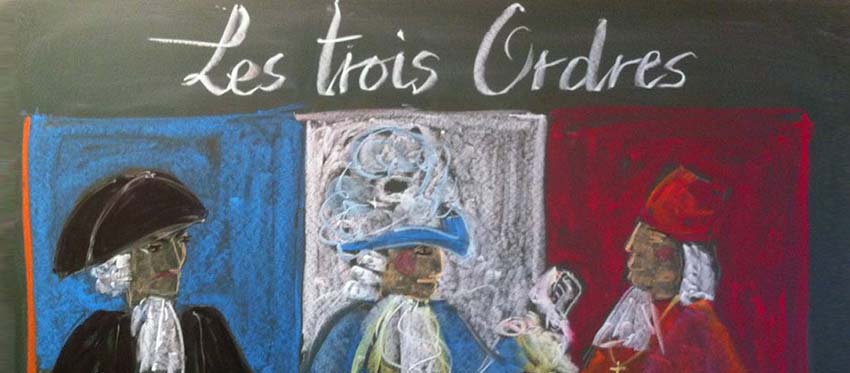
Les points forts de la huitième classe
In the 8th grade, students are growing up quickly. They have to make a new body their own, and to find a new identity. In this way, the young teenager questions what has been put in place around him or her, and eventually what lies ahead. This is the beginning of their journey towards individualisation.
In response to this, the 8th-grade program proposes, for example, an approach to the major upheavals that have shaped our world (the French Revolution). In mathematics, pupils work on the volumes of solids and experience Space, with the aim of helping them design their own. They also study the human body; through its anatomy, they understand what makes it move, and through its organs, what gives it life.
They develop both a more global and more detailed awareness of themselves and the world, so as to gradually find their place in it. The theater project supports this process of transformation.
Subjects taugh
French, mathematics, history, geography, physics, chemistry, life and earth sciences, physical and sports education, English, German, visual arts, music, sewing, woodworking and eurythmy.
Students can now apply to join the school’s symphony orchestra, which brings together instrumentalists from classes 8 to 12. The teacher’s approval will depend on the instrument played.
ZOOM on the 8th grade play
Eighth-graders prepare a play studied in French class. They also take part in making the sets, creating costumes and designing the posters. Several performances, open to all, are given at the school.
9th grade
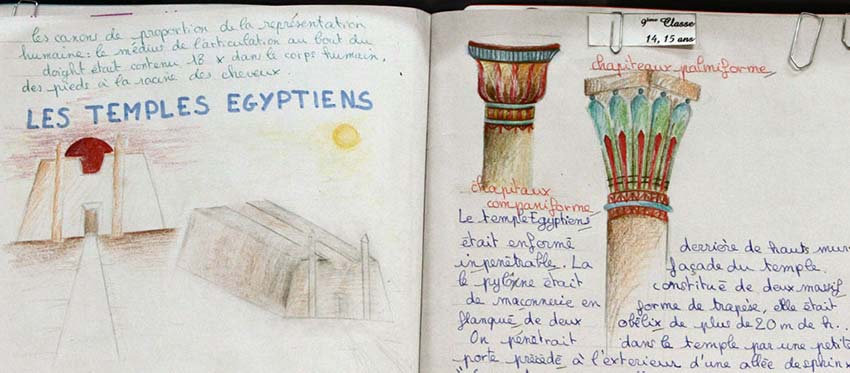
Les points forts de la neuvième classe
In ninth grade, young people are immersed in adolescence, sometimes experiencing mood swings stemming from emotional chaos. For many, their bodies are entering a stage of slower growth, and they’re close to reaching maximum physical potential. Adolescents are often in a phase of great ebullience that they may find difficult to control. At the same time, students are developing increasingly conceptual and abstract thinking.
The common thread running through this year is the study of phenomena as much in their depth as in their particular colour. Students practise and develop their analytical skills in order to establish their own judgments. Thus, they work on comedy and tragedy in literature, thermal dynamics in physics, and a sense of beauty in art history, etc.
Gradually, a diversity o fnuances emerges from the contrasts. Emphasis is placed on cause-and-effect relationships, looking beneath the surface of events. Investigation uncovers the founding impulses of our culture.
In order to channel their energy constructively, artisan craft workshops are offered (copper work, modeling, sewing). Students are graded for the first time.
Subjects taught
French, mathematics, history, geography, physics, chemistry, earth sciences, physical and sports education, English, German or Spanish, visual arts, art history, music, sewing, woodworking, copperwork, modeling and eurythmy.
Students can now apply to join the school choir.
Language exchanges
From the ninth grade onwards, students can, with the agreement of their teachers, have pen pals and take part in school exchanges (a French pupil staying for several weeks with a foreign family, and a foreign pupil staying with a French family).
ZOOM on the 9th grade forestry week
Students go on a week-long forestry and logging course with their teachers and supervisors.
Students are immersed in nature, usually in winter, leaving their mobile phones, electronic games, computers and public transport behind for a few days. For most of them, this experience will be a discovery of a new world, a privileged moment during which the students can refocus, but also share community life, friction and joy being part of everyday life.
This course takes place at a time when the body is developing rapidly, when physical strength sometimes overwhelms the student. It enables them to use this strength by channeling it, mastering it and cultivating precise gestures, the effects of which they will be able to see immediately on the land.
Socially, the week strengthens the bonds between students, who live together “24 hours a day.” It’s also a moment of encounter with nature that enables them to distance themselves from everyday life and develop self-control
10th grade
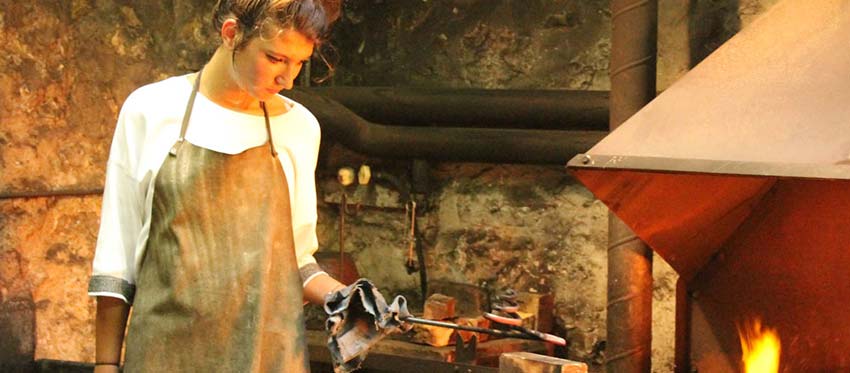
10th grade highlights
Students gradually free themselves of the chaos of adolescence. They become available for objective but empathetic observation of the world and its underlying laws. They are also better able to express their feelings in a measured, structured way.
This new balance enables students to consciously link their perceptions to their thoughts. Finding out about the laws of the world will help to build confidence in one’s abilities.
Subjects taught
French, mathematics, history, geography, physics-chemistry, life and earth sciences, English, German or Spanish, visual arts, music, weaving, metalwork, stone sculpture and eurythmy. Introduction to computers.
The 10th grade orientation meeting
During the course of the year, a meeting between the student, parents and two teachers provides an opportunity to take stock of past schooling and look ahead to the future. The student can then talk about his or her plans and the means to achieve them, as evidence of his or her autonomy.
Agricultural internship
In the tenth grade, students take part in a two-week individual internship in an agricultural setting, if possible on an organic farm.
Inscription
Les inscriptions sont possibles toute l’année pour toutes les sections, de la Maternelle à la Terminale.
Merci d’envoyer votre demande via ce formulaire ou de nous joindre par téléphone au
01 60 11 38 12
[Suite à des bugs occasionnels] Si vous n’avez pas de réponse à votre demande sous une semaine après envoi du formulaire, nous vous remercions de contacter l’accueil pour vérifier sa bonne réception.
Suite à votre demande, nous vous transmettrons un dossier à compléter et à nous retourner par mail, par la poste ou à déposer dans la boîte aux lettres de l’école.
Sous deux semaines, un professeur vous contactera pour vous proposer un rendez-vous pédagogique, pour lequel la présence de l’enfant et de ses deux parents est requise.
Suite à ce rendez-vous, un des deux professeurs vous ayant reçus, vous informera de la décision du Collège des professeurs, vous confirmant ou non l’inscription de votre enfant.
Voir la grille des tarifs pour 2023-2024. Et les tarifs 2024-2025.
L’école, en collaboration avec le Fonds Educations Plurielles, a mis en place une caisse de solidarité pour octroyer des bourses aux familles n’ayant pas les moyens de payer tout ou partie de la scolarité. Si vous êtes dans cette situation, n’hésitez pas à contacter:
caissedesolidarite@ecole-steiner-verrieres.org
Vous pouvez aussi télécharger la correspondance des âges par classe
(n’hésitez pas à nous appeler pour en savoir plus sur la classe
où serait inscrit votre enfant suite à la modification de notre cycle élémentaire).
